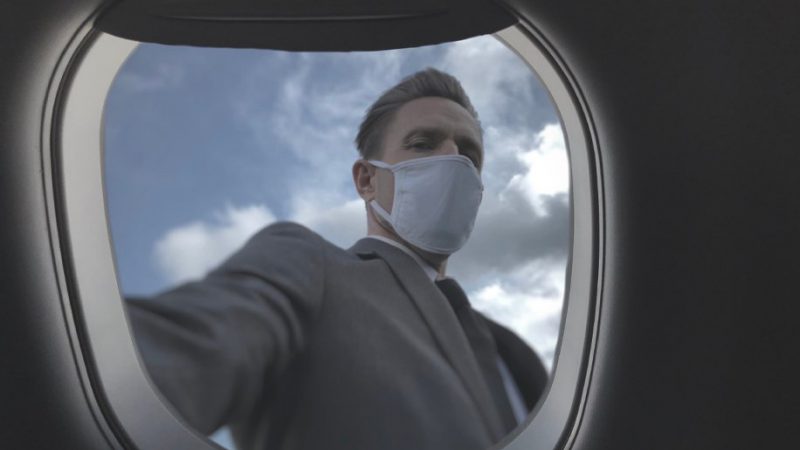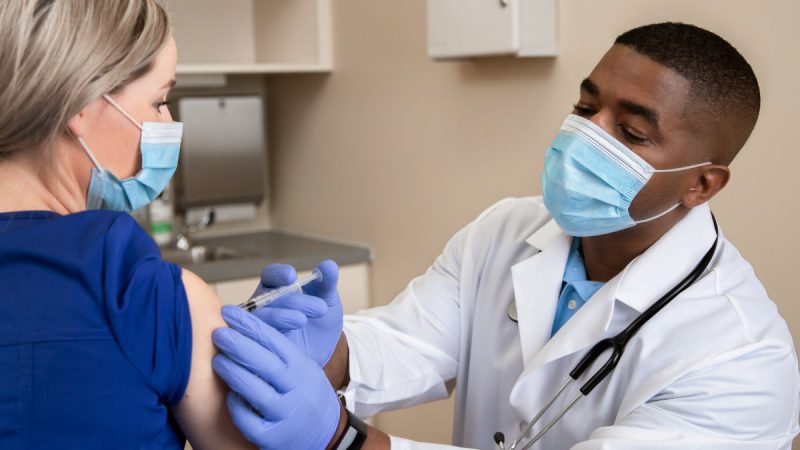Surveys Eye Sadness and Keys to Recovery
New research gives insight into the Covid effect and travel as a cure
March 22, 2021

Vaccinations are moving forward bringing in a new Post-Covid reality that may prove to be the light at the end of the tunnel. In a recent poll of 2,783 potential U.S. travelers conducted by Travel Leaders and released last week:
– 85 percent said they have already been vaccinated or planned to get vaccinated when eligible
– One in three have already booked their next vacation
– 62 percent are planning to take their next vacation in 2021
– 44 percent said “exploring new places” is what they miss most about traveling
– 62 percent said if a country required visitors to be vaccinated in order to enter, they would be more likely to visit
When asked about plans to get vaccinated for COVID-19, a surprising 44 percent of travelers said they had already been vaccinated while 41 percent said they planned to get vaccinated when eligible. Only eight percent said they did not plan to get vaccinated while another eight percent said they haven’t decided yet.
From a destination restrictions perspective, a majority (62 percent) of survey respondents said that if a country required visitors to be vaccinated in order to enter, they would be much more likely (36 percent) or somewhat more likely (26 percent) to visit. For those who have already been vaccinated, 66 percent would be much more likely (41 percent) or somewhat more likely (25 percent) to visit.
“This data is interesting because it suggests travel is a big factor in motivating many people, particularly seniors, who are the most at risk of serious illness or hospitalization from COVID-19, to get vaccinated,” said John Lovell, President of Travel Leaders Group. “Compare this traveler population, with a 44 percent already-vaccinated rate, to the general population, where only one in seven have already been vaccinated.”
In terms of timing, 34 percent are planning to take their vacation this spring and summer, an additional 23 percent are planning to travel this fall, and five percent are looking at year-end holidays for travel. In other words, three quarters will be traveling in 2021.
The news and happenings cannot come soon enough. A grand malaise is afoot, perhaps mostly noted in whispers between friends and personal pulse taking, but a Covid depression is alive and well and waiting to be vanquished — hopefully by vaccinations and travel.
Lululemon, perhaps best known for stylish, sheer exercise duds, is also an emerging player in the wellness space. As such, it released this month its first-ever Global Wellbeing Report, a 10-country study benchmarking the state of wellness and wellbeing worldwide with a proprietary Global Wellbeing Index that explores the dimensions, drivers, and barriers to being well. The timing is an interesting one as the world comes out of lockdown slowly to take the pulse on the world ahead, versus the world they left behind.
“The events of the past year brought unprecedented challenges to the physical, mental, and social wellbeing of people worldwide,” said CEO Calvin McDonald.
Some key findings include:
The Paradox of “I Feel Fine”
• The Global Wellbeing Index currently sits at 65 out of 100, indicating a moderate level of feeling well on a spectrum of weak to strong wellbeing. The index is based on how people around the world rate how they feel across the physical, mental, and social dimensions of wellbeing.
• Despite a moderate Index average, less than a third (29 percent) of global respondents indicate strong wellbeing across all three dimensions.
• An examination of performance against the top five drivers of strong overall wellbeing reveals a critical need to improve:
– Only 15 percent consider themselves in good physical health
– Only 17 percent feel they are able to manage stress effectively.
– Only 19 percent feel like they have enough energy to be able to accomplish things they need to do every day.
– Only 19 percent feel confident in themselves most of the time.
– Only 18 percent have a good work/school/home life balance.
Optimism on the Decline
– Optimism has fallen 19 percent with only 40 percent feeling optimistic about the future now, compared to 59 percent who felt optimistic about the future a year ago.
– As optimism declines, the importance of wellbeing is on the rise with half of global respondents expecting to increase focus on physical and mental wellbeing this year. 86 percent report barriers impacting their wellbeing with key inhibitors including:-COVID-19 (51 percent)
– Time/personal responsibilities (47 percent)
– Lack of money (46 percent)
– Lack of a personal support network (45 percent)
– Health conditions (42 percent)
– Stress (32 percent)
– Limited access to resources (32 percent)
Gen Z Falling Behind
• More Gen Zs (92 percent) report facing barriers that impact their wellbeing – including stress and a lack of time, money, knowledge and resources – than any other generation.
• Gen Z has had the most difficulty coping with COVID-19 and is most focused on, and impacted by, social issues. One in four Gen Zs are deeply affected by issues including COVID-19 and racial injustice, creating a barrier to mental wellbeing.
• The generational impact is acute in the US, where Gen Z report the lowest Index score (56) and are the least likely to feel well across all three dimensions (only 13 percent) than in any other country.
A Proactive Mindset Necessary
– People coping very well during these unprecedented times are focused on simple activities to support their wellbeing. The actions creating the greatest impact among those coping very well (versus those having difficulty coping) include getting enough sleep, eating healthy food, connecting with people they care about, being physically active, and spending time outdoors.
– The study found that the drivers of being well are interconnected; making strides in one area will benefit overall wellbeing.
-The research reveals that a proactive approach to personal development drives stronger wellbeing and a more optimistic view toward the future:
– Those who are proactive are more likely to feel they are in good physical health and able to manage stress—the top two drivers of over wellbeing.
– People with a proactive mindset are significantly more likely to be optimistic about the future (53 percent) than those who are not proactive (22 percent).
– The impact of a proactivity is seen in China, the standout market with the highest regional Wellbeing Index of 79 (vs. 65 global average), and 62 percent of its citizens feeling well across all three dimensions.
– The research indicates strong wellbeing in China is supported by a proactive mindset amongst 78 percent of the population.
Employers Must Do More
• Only 15 percent of those employed strongly agree their employer offers resources that support their overall wellbeing. The study also revealed a close connection between a positive work environment and optimism for the future.
• The impact of work on wellbeing is highlighted in Japan, which reports the lowest regional Wellbeing Index of 60, with only 21 percent of its citizens feeling well across all • Stress acts as a greater barrier in Japan, where fewer than 1 in 10 experience positive work/life balance.






